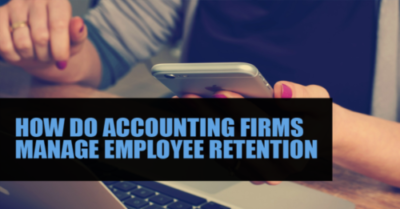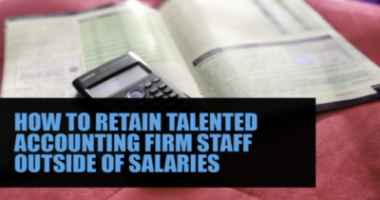How Much is My Accounting Firm Worth?

Speaker 1: How are firms actually valued? Obviously the client list is involved, but it’s hard to determine when we’re going to sell or potentially going to acquire, what are the different elements of value or valuation gets put into that, and how can firms start to wrap their head around the different levers that determine the value of their firm?
Speaker 2: Well that’s a great question and probably one of the most … the three most frequently asked questions that we get are, what’s the multiple, what’s the multiple, and what’s the multiple. First of all, let me just preface this by saying, an accounting firm is not valued like a traditional asset sale. It’s valued very, very differently. Too many people get focused on what is the valuation, what is the multiple. The multiple is the effect. What you’ve got to recognize at first is the cause. And there are a number of factors that influence how a firm is valued. First and foremost, how much cash is upfront? If any. If any cash is upfront. For instance, and what I mean by that … I’m operating a tax firm and I merge with a bigger firm in August, probably 90% of my collections will have been done by May. So that person may have to operate my firm at a loss until next tax season. So obviously that’s going to … if they give me some money upfront, that’s obviously going to affect the multiple.
Second is, the length of the payout period. You also have to figure in client retention. All these things are the cause and the end result will be the multiple. So as far as … you could also say, any kind of business, location, location, location. People say, “Well, what are multiples going for in New York versus Idaho?” And again, what I would say is, the larger the market your firm is in, say, in New York or Chicago or Los Angeles, the higher your multiple will probably be. If you’re the only firm 20 miles outside of Boise,
Idaho, you’re probably not going to see … one time you’re probably going to see about .6, .7 as far as multiple of gross revenues.
So there’s a lot of factors that go into a valuation. So instead of … Too many people get too fixated on the valuation, rather than exploring the underlying reasons of why they want to merge in the first place. And that’s a whole nother discussion.
Speaker 1: Yeah, and I want to dig in. There’s a point you made and I want to dig into it here in just a second. You mentioned location, retention, cash, the period, the timing of the sell. You have these .6, .7 multiples, 1-time-1-x. So what’s … just to get an idea of range and help us kind of understand and I think about this more. What’s been the lowest, more or less, and what’s been the highest, and then maybe we can dig into the characteristics that drove those multiples.
Speaker 2: Well, I was going to say the … 10 years ago, it probably wasn’t uncommon to get one-and-a-half, one-and-a-quarter. Was seldom seeing anything over 1.1 or 1.2, and those are in major markets like New York or Chicago. We’re dealing with some firms in some rural areas in Midwest, we’re seeing .5, .6. So, again, location is critical. Also, some other factors that go into it, maybe a firm with a specialty niche might command a higher multiple despite the location. We’re working with a smaller firm in the New England area at this moment, they have a very, very sophisticated IT department. They do a lot of penetration testing and things of that nature. So they are going to command a little higher multiple, than say, a firm that does type 1 tax and audit work. So that could also affect your multiple as well.
Speaker 1: And that multiple, just to be clear, is that on overall revenue or …
Speaker 2: Yeah. Gross revenue. Gross revenues, never on profit. So that’s what that number is predicated on, yes.










